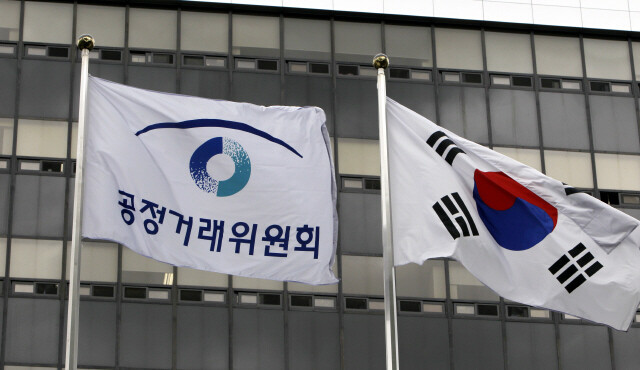
Hankyoreh material photo
Nine out of ten suppliers and stores that transact with department stores, hypermarkets, convenience stores, and online shopping malls were found to recognize that the’GapJil’ practices of large-scale retailers are steadily improving. Amid the rapid increase in non-face-to-face transactions, there were responses that there were relatively many unfair transactions on the online shopping mall side. According to the ‘2020 Written Survey on the Distribution Field,’ released by the Fair Trade Commission on the 1st, 93.0% of suppliers and stores that deal with large-scale distributors responded that last year’s unfair trade behavior improved from the previous year. 66.4% of respondents said that there was a lot of improvement, and 26.6% said that there was a slight improvement. 7% of respondents said that it was not improved. In the last year’s survey (for transactions in 2019), the response that’it improved’ dropped to 91.3%, and rose 1.7 percentage points this year. Specifically, 95.0% and 94.8% of respondents said that things that were not issued by sending employees from suppliers, giving them a contract late, or not issuing at all were improved, respectively, at 95.0% and 94.8%. On the other hand, the response that it improved in areas directly related to economic benefits such as’exclusive transaction request’ (92.6%) that prevents transactions with other distributors or the problem of handing over inventory products back to the supplier (93.0%) Was low. In particular, the response of “improved” remained in the low 90% of the sales promotion fee being passed on to suppliers (92.3%), sales incentives demanded (91.5%), and product sales price unpaid or delayed payment (91.3%).

Source: Fair Trade Commission
99.0% of respondents said that they are using a standard transaction contract. This is a 0.6 percentage point increase from the previous year. The Fair Trade Commission evaluated that “the use of standard transaction contracts in the distribution industry seems to have settled in effect.” There was a slight difference by business type, so 100% of the outlets answered that they’use’, hypermarkets (99.4%), convenience stores (99.2%), and department stores (99.1%) were high, while online shopping malls were 97.7%. It showed a relatively low number. The FTC said, “With the spread of soft norms such as policies to promote the use of standard transaction contracts, and strict sanctions against violations of the Large-scale Distribution Business Act, it seems to have contributed to the reduction of the rate of unfair behavior. “We will also promote the revision of related laws in order to provide education on the Korean market and to resolve unpaid and delayed payments for sales price.” This survey was conducted by the FTC for two months from October last year, at three department stores (Lotte, Shinsegae, and Hyundai), hypermarkets (E-Mart, Homeplus, and Lotte Mart (3)), and online shopping malls (Coupang, Wemakep, Timon, SSG) 4 Seven thousand suppliers and store leases that deal with 29 large-scale retail brands such as stores were randomly extracted and conducted through an Internet and mail survey method, with a response rate of 25.1%.
